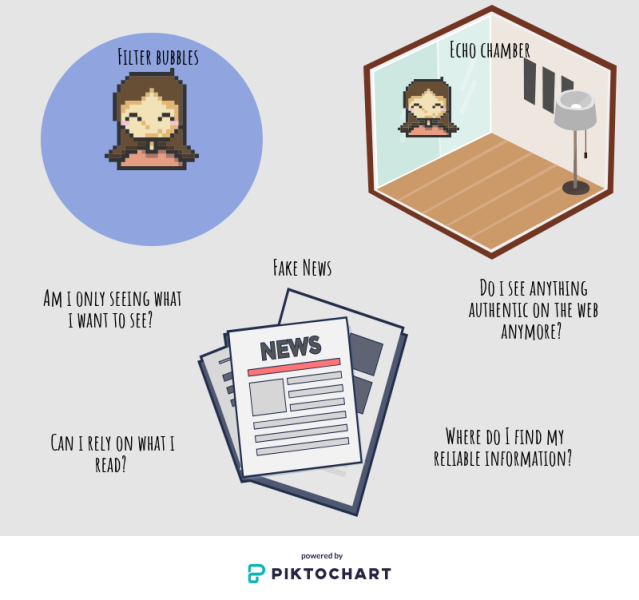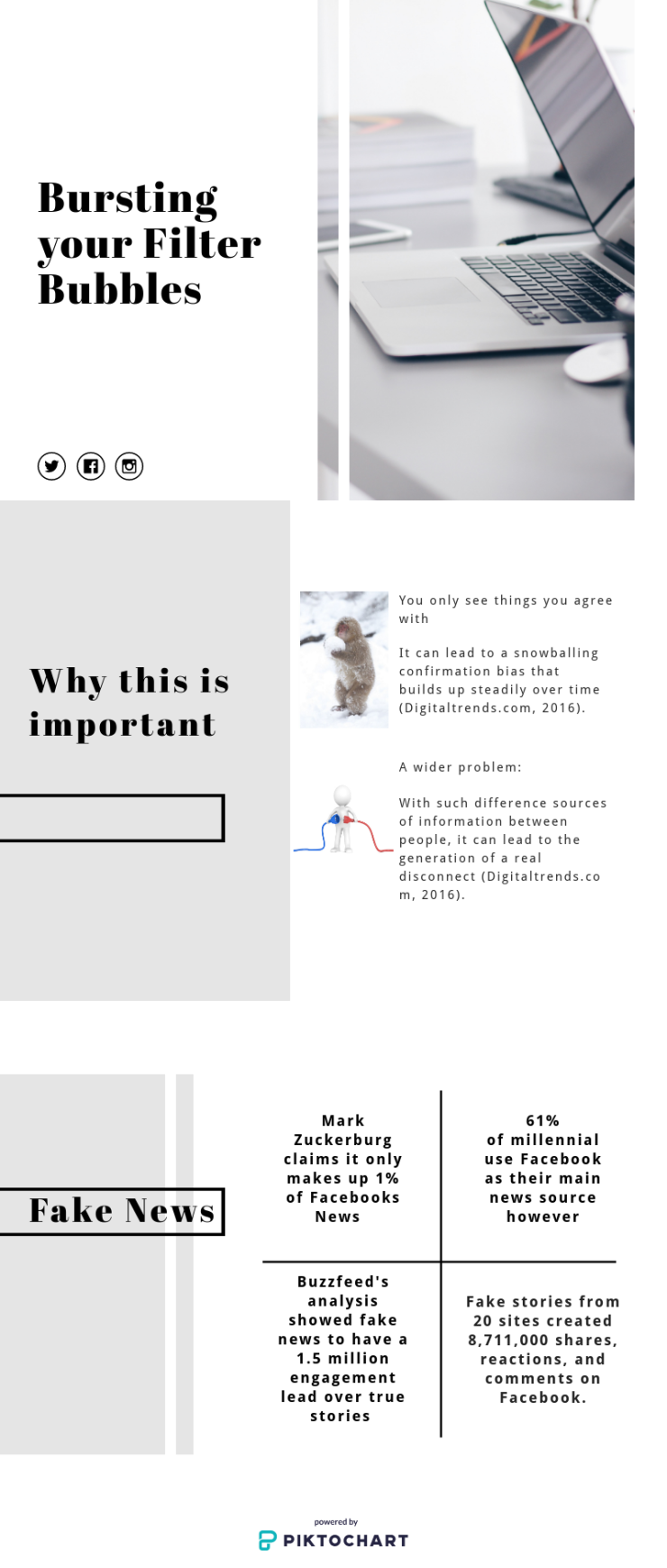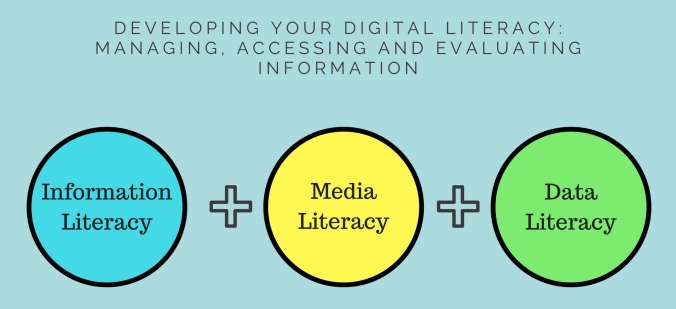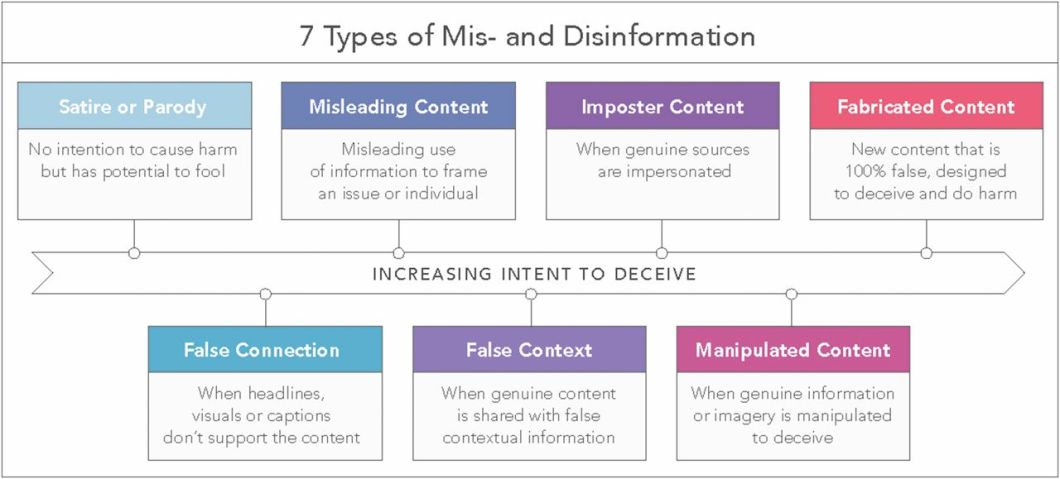
Make News Great Again
This week I feel like the content I produced, compared to other weeks, was not up to scratch. I couldn’t get my head around how to approach the topic of ‘Fake News’ and I think that that is evident from this week’s blog post and the poor structuring of it. I tried to take on board comments from last week’s feedback about having headings, and while I agree that headings are a good idea I think the implementation of them made the flow of my blog suffer.
Continue reading →










